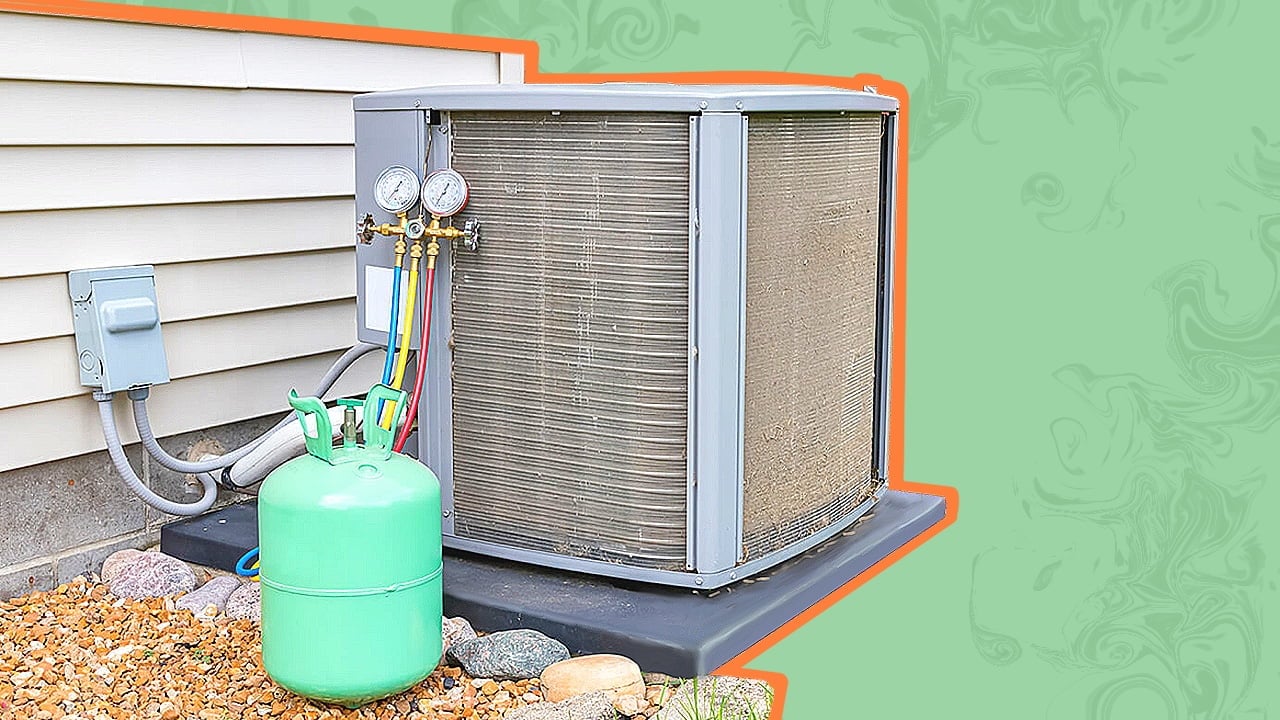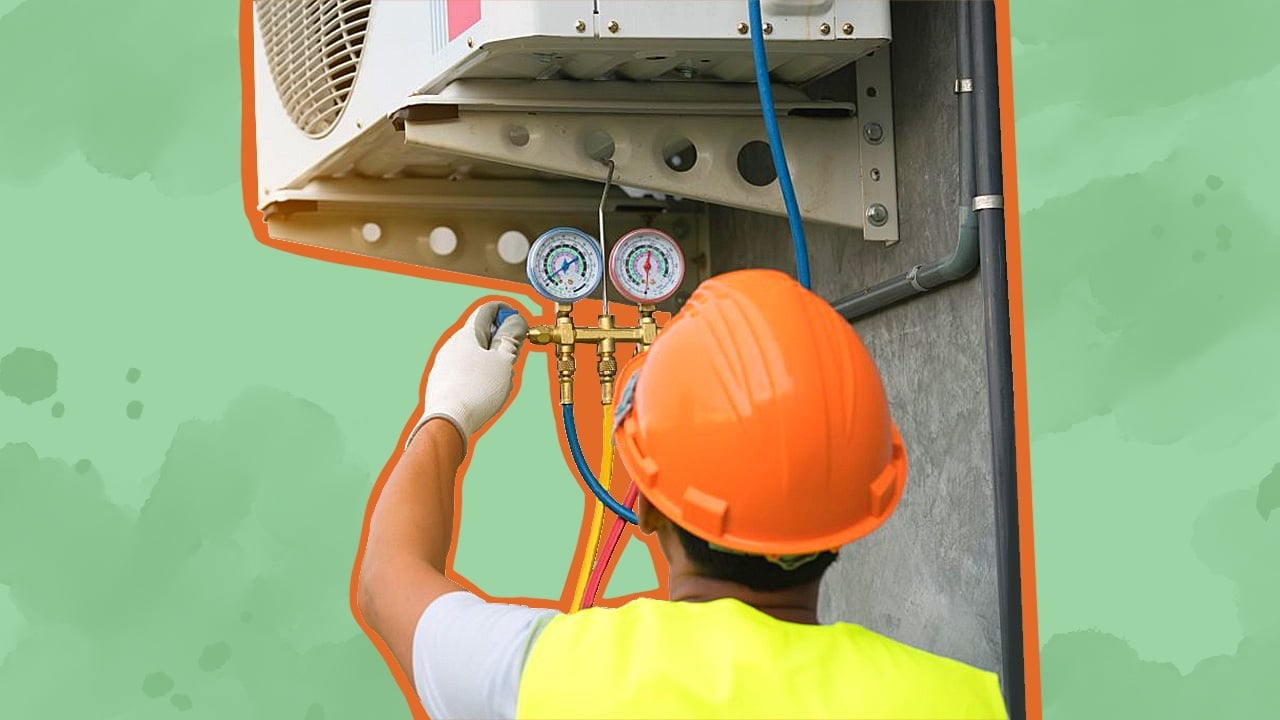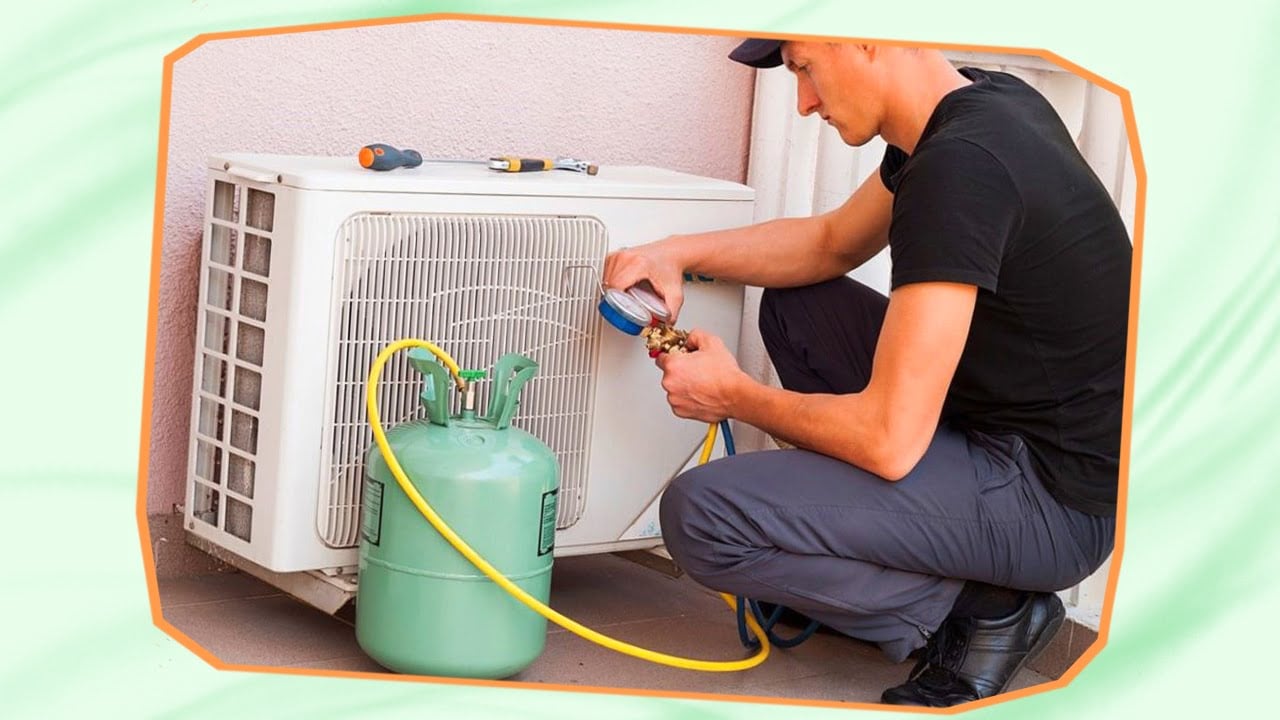How Often To Recharge Home AC – Guide To AC Maintenance
Usually, most units require a refrigerant charge once every 2-5 years. However, homeowners must understand the dangers of handling a refrigerant leak, as Freon (refrigerant) is a toxic substance. Plus, recharging your home AC is just a temporary fix, as your unit may eventually leak again. For most homeowners, an air conditioner is the only […]

Usually, most units require a refrigerant charge once every 2-5 years. However, homeowners must understand the dangers of handling a refrigerant leak, as Freon (refrigerant) is a toxic substance. Plus, recharging your home AC is just a temporary fix, as your unit may eventually leak again.
For most homeowners, an air conditioner is the only saving grace when the temperatures are soaring.
But what if it gives up on you on a sultry hot afternoon? Absolute horror!
That’s when you may wonder if you need to recharge the air conditioner unit. Accordingly, you may also want to know how often the cooling system is recharged.
To help you with that, I have curated this brief yet informative guide discussing when and how often to recharge your AC unit.
How Often Do You Need To Recharge Your Air Conditioning System?

You might be surprised to know this, but you don’t need to recharge your AC unit. Even if a technician says that your AC needs more Freon (refrigerant), it doesn’t mean the substance gets used up like gas in a car. Rather, the refrigerant absorbs heat from the surroundings and expels it from your house. So, it transforms from liquid to gas and back to liquid form but never diminishes during the cooling process.
Besides, most air conditioners only need to be recharged once every 2-5 years unless you face a refrigerant leak. In case of a leaking refrigerant, the AC system will cease to function efficiently. So, you may notice a dip in its cooling capacity or hear the compressor operating more frequently than it usually would.
Now, if your central air conditioning unit is low on refrigerant, know that you shouldn’t recharge it yourself. The reason is that AC refrigerant is a hazardous substance.
Warning
If you’re not trained to handle refrigerant lines, you shouldn’t handle any related repairs since direct contact with Freon may cause lung damage or even sudden death.
Not to forget, recharging the refrigerant levels is only a temporary solution, as it is bound to leak again. So, you’ll only have to recharge the AC unit more often, which will obviously cost more money.
Lastly, recharging your central air conditioner after a refrigerant leak will void your manufacturer’s warranty. Hence, to be on the safer side, it is best to consult a licensed technician to handle the job.
How To Detect A Refrigerant Leak
The most common problem homeowners face with their AC units is a refrigerant leak. Even the best air conditioners from brands like LG, Hitachi, or Whirlpool Corporation are bound to face cooling, voltage, or other electric issues.
Hence, below are some of the tell-tale signs of a leaking refrigerant.
1. Frozen Evaporator Coils
A refrigerant leak usually occurs on the evaporator coil, causing it to freeze or develop ice buildup. A professional should address this immediately to prevent any health issues among people exposed to the leak.
2. Compressor Runs More Frequently
As mentioned earlier, when the central air conditioner requires more refrigerant, it means that the system is not able to cool the air as it should. Consequently, you will notice the inverter compressor working harder and may even produce more noise and vibration.
3. Inefficient Cooling Capacity
One of the obvious signs of a refrigerant leak is the lack of cooling in the surroundings. However, low refrigerant charge may not be the only culprit behind a malfunctioning AC.
For instance, your AC unit may have a dirty air filter or a faulty thermostat preventing you from enjoying a cool and comfortable room temperature.
But regardless of the issue, you must consult a licensed service technician to check the AC unit as soon as you notice the aforementioned signs. Especially in the case of a refrigerant leak, it is best to take quick action since, if left unchecked, it can eventually damage the unit. And the worst part is that you may end up with high energy bills, even though your AC is not working optimally.
What To Do If Your Air Conditioning System Has Low Refrigerant Levels
- Turn off the air conditioning system from the breaker box
- Call a professional technician as soon as possible
- Check the exteriors of your AC for any visible signs of damage
- If you have an outdoor unit, remove the cover to look for any problems
- Inspect inside your house for visible signs of water damage
- Switch on your air conditioning system and ensure there are no unusual smells and sounds in the vicinity
- Always check your monthly electric energy consumption for any discrepancies
How Does An AC Technician Perform A Refrigerant Charge
1. Assessing The AC
First, the technician may check the air filter and thermostat to determine whether the AC is malfunctioning due to a leak or not. Thereafter, they may proceed to check the indoor unit as well as the outdoor unit to detect any AC problems.
All these steps are taken to determine the reason behind low refrigerant levels. Accordingly, they will be able to decide if their leak readings are correct or not.
2. Explain The Issue And Suggest Solutions
In case of a refrigerant line leak, the technician may inform you about what is causing the leak and how to fix it. They may suggest any one of the following two methods…
A. Fixing The Refrigerant Leak
Fixing the leak requires electronic equipment along with UV dye or a bubbling agent. Using these materials, the technician can detect the location of the leak. Accordingly, they will drain the cooling system, fix the leak, and recharge your central air conditioner.
To be on the safer side, make sure that they test the system before leaving.
B. Recharging The AC Without Fixing The Leak
If this is the first time you’ve experienced a refrigerant leak, simply recharging the AC may do the job without fixing the root cause of the problem. However, I recommend doing so only if you plan to get a new unit soon.

Recharge Home AC Conclusion
That’s all for today, folks! With these simple tips, you can increase the efficiency of your conditioner while ensuring the safety of your loved ones. So, while it may be tempting to DIY certain electrical fixes and save some money, it’s best to let the experts handle it.
For more information on heating, ventilation, and air conditioning, I suggest reading my latest article, “What is a MERV rating?” And if you want to practice efficient energy consumption, I suggest checking another one of my informative guides, “What is a Dual Inverter Air Conditioner?”
